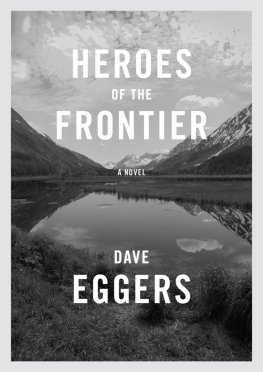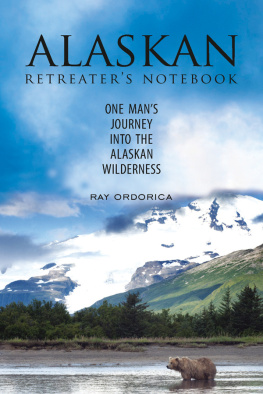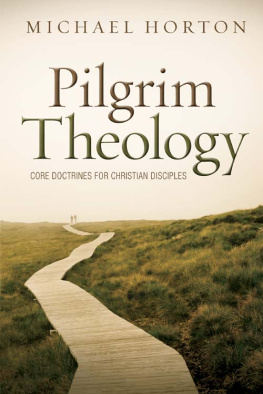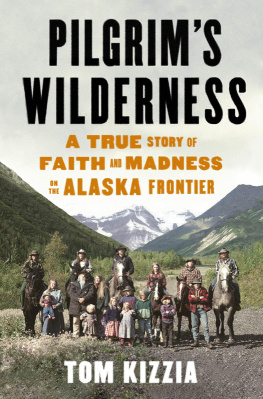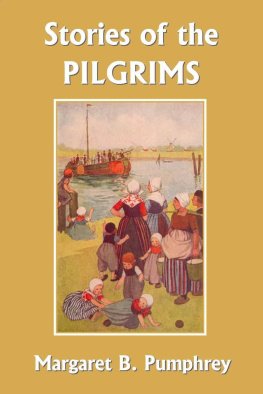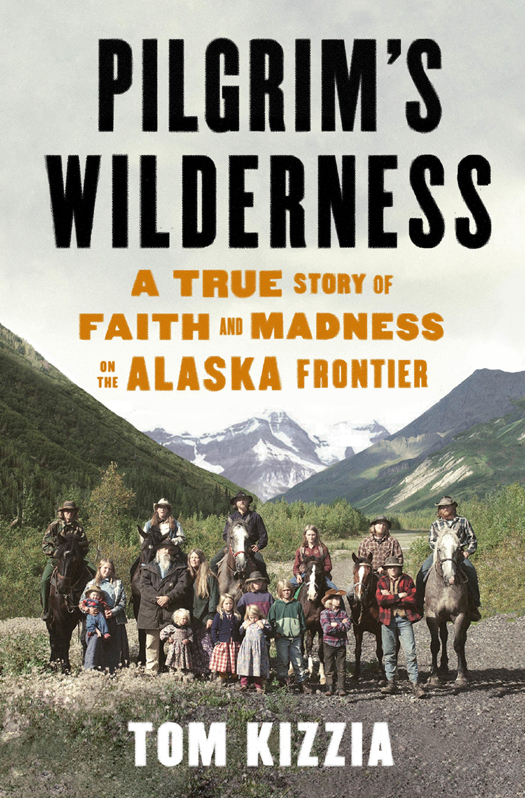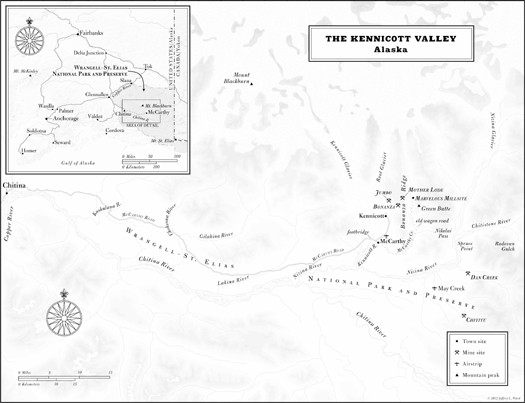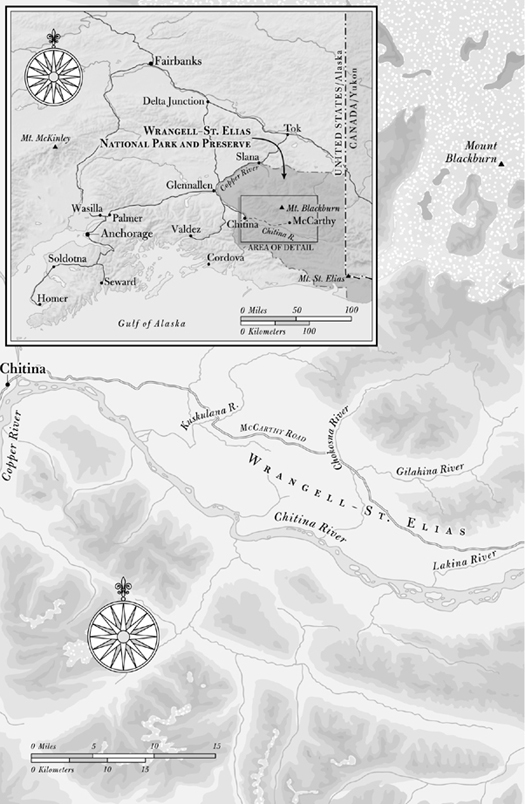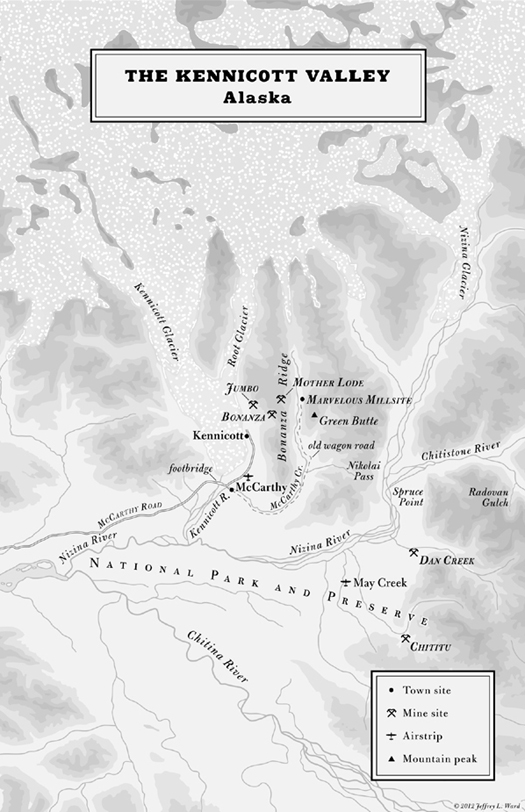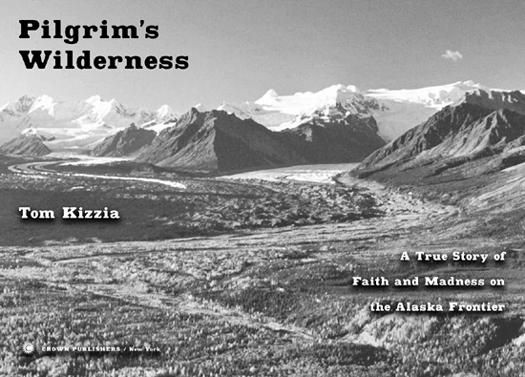
()
Copyright 2013 by Tom Kizzia
All rights reserved.
Published in the United States by Crown Publishers, an imprint of the Crown Publishing Group, a division of Random House, Inc., New York.
www.crownpublishing.com
CROWN and the Crown colophon are registered trademarks of Random House, Inc.
Grateful acknowledgment is made to HarperCollins publishers and Hodder and Stoughton Limited for permission to reprint excerpts from The Road to McCarthy by Pete McCarthy. Copyright 2002, 2004 by Pete McCarthy. Reprinted by permission of HarperCollins Publishers and Hodder and Stoughton Limited.
Library of Congress Cataloging-in-Publication Data
Kizzia, Tom.
Pilgrims wilderness: a true story of faith and madness on the Alaska frontier/by Tom Kizzia.1st ed.
p. cm.
Includes bibliographical references.
1. Hale, Robert (Robert Allen), 19412008. 2. Hale, Robert (Robert Allen), 19412008Family. 3. PioneersAlaskaMcCarthyBiography. 4. FundamentalistsAlaskaMcCarthyBiography. 5. CriminalsAlaskaMcCarthyBiography. 6. Abusive menAlaskaMcCarthyBiography. 7. McCarthy (AlaskaBiography). 8. Dysfunctional familiesAlaskaMcCarthy. 9. IncestAlaskaMcCarthy. 10. CultsAlaskaMcCarthy. I. Title.
F914.M33K59 2013
979.805092dc23 2012016502
eISBN: 978-0-307-58784-8
Map illustrations by Jeffrey L. Ward
Jacket design: Eric White
Jacket photograph: Marc Lester/Anchorage Daily News/MCT/Landov
v3.1
For Emily and Ethan
As I walkd through the wilderness of this world, I lighted on a certain place, where was a Denn; And I laid me down in that place to sleep: And as I slept I dreamed a Dream. I dreamed, and behold I saw a Man cloathed with Raggs, standing in a certain place, with his face from his own House, a Book in his hand, and a great burden upon his back.
John Bunyan, The Pilgrims Progress, 1678
C ONTENTS
A UTHORS N OTE
IN THE winter of 2002, a man with the wild gray beard of a biblical prophet showed up in the remote Alaska ghost town of McCarthy with his wife and fourteen children. He called himself Papa Pilgrim. His family found a deserted mining camp in the mountains nearby, deep inside North Americas largest national park, and set about building a homestead life straight out of the countrys pioneer pastpackhorses, goat milk, bear meat. Fiddles and guitars. And a Caterpillar D5 bulldozer. By the Seventh Monththe Pilgrim Family did not use the pagan names of the calendarthey were at war with the National Park Service.
I was a reporter for Alaskas biggest newspaper. Pilgrim was wary of reporters, bureaucrats, police officers, and park rangers. He said he would let me ride on horseback to the homestead to hear his story, in the company of his adult children, because my wife and I had a cabin of our own near McCarthy.
The cabin had actually been my wifes idea. She had old ties to the small Wrangell Mountain community. For me those mountains had mainly been a place to go camping, but Sally used to play the fiddle at dances in McCarthys tinder-dry Hardware Store and knew all the local characters and feuds. We were both East Coast refugees and had professional interests in the area as wellSally, a Sierra Club lobbyist working to protect Alaskas still-wild federal lands, and me, a former American Studies major scribbling down stories of manifest destiny for the paper. After we met and married, we built a small cabin on her dream spot, a river bluff inside WrangellSt. Elias National Park and Preserve. Pilgrim seemed to believe this pioneering impulse would make me sympathetic to his struggles. He called me Neighbor Tom.
Pilgrims battle with the park appealed to Alaskas romantic notion of itself. His renunciation of modern life and fight against the advancing forces of government made him a hero to some. Pilgrim had the scapegrace appeal of a Western outlaw, but he presented himself above all as devoted to family and Scripturetraits that squared him in the public eye and gave consequence both to his defiance of authority and to his pious engagement with his Lords creation. His secrets were cloaked, as a state prosecutor later put it, under the guise of pursuing the Alaskan dream, of carving out a piece of the Alaska frontier, where a man pits his strength and that of his family against the wild. Such anachronistic strangeness might have been a red flag anywhere else, but it elicited great sympathy in McCarthy, where the arrival of federal agents in Park Service uniforms had only recently unsettled old habits of mind about independent self-sufficiency and dominion over nature.
Papa Pilgrim said it seemed like Gods plan that a McCarthy neighbor would arrive to tell his tale. It may be that, in an empty wilderness, the individual stands out more, making it easier to believe an intervening deity would go to such trouble. Certainly Pilgrim liked to tell his own story as a God-wrought tale of redemption. His turning points involved scenes of credulous wonder and signs from above. Let me propose, then, before passing to Pilgrims story, such an opening scene in the pioneer life of Neighbor Tom: a late-summer evening in the year we built our cabin in the Wrangells. Im sitting with my bride on an open promontory above the canyonInspiration Point, Sally called it, in mock-solemn national park style. We listen to the river, and she rests her head on my shoulder as the moon comes up in a lazy northern trajectory, its yellow light peeking through a notch in the mountains, then vanishing behind the next summit, half-appearing a second time and setting again, and finally floating freea magical triple moonrise.
Or so it seemed, from where we sat. I realize now it was nothing more than the turning of the indifferent heavens.
P ROLOGUE : T HIRD M ONTH
WHEN THE song of the snowmachine had faded down the valley, the sisters got ready to go. Elishaba moved quickly through the morning cold and snow in heavy boots, insulated pants beneath her prairie skirt, ferrying provisions from the cabinraisins, sleeping bags, two white sheets. Jerusalem and Hosanna tore through the toolshed looking for a spark plug. The plugs had been pulled from the old Ski-Doo Tundra machines that morning.
It was late in the Third Month, and the days in Alaska were growing longer. The overcast was high, the temperature holding above zero. They knew they didnt have much time.
White mountains squeezed the sky above the old mining cabin. For weeks, Elishaba had been looking up, praying as if to the summits. But she knew the snow was too deep, she would be tracked easily. The only trail, the one that had brought their family the attention they once shunned, ran thirteen miles through the wilderness, slicing down the canyon through avalanche zones and back and forth across the frozen creek.
The trail ended at a ghost town. McCarthy had once been a boom-town of bootleggers and prostitutes. These days it was the only place in the Wrangell Mountains that could still be called a community, though most of the old buildings had fallen down and a mere handful of settlers remained through the silent winter. At first that isolation had been the attraction. The Pilgrim Family had traveled thousands of miles to reach the end of the road in Alaska. They had parked their trucks at the river and crossed a footbridge into town and continued on horseback and snowmachine and bulldozer and foot to their new home.


